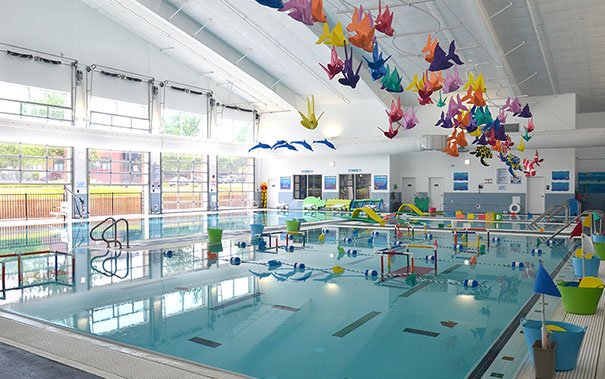
Let’s begin by defining Autism spectrum disorder (ASD). Understanding ASD will help to clarify why swimming can be an important experience for children on the spectrum.
Autism spectrum (or autistic spect) is also known as Pervasive Developmental Disorders (PDDs). These disorders refer to a group of conditions that involve delays in the development of many basic skills – most notably the ability to socialize with others, to communicate, and to use imagination. Children with these conditions often are confused in their thinking and generally have problems understanding the world around them.
It is because these conditions are typically identified in children around 3 years of age (a period critical in a child’s development) that they are called development disorders. The condition usually begins far earlier than 3 years of age, but parents often do not notice a problem until their toddler isn’t walking, talking, or developing as well as other children of the same age.
ASD is characterized by:
• Persistent deficits in social communication and social interaction across multiple contexts;
• Restricted, repetitive patterns of behavior, interests, or activities;
• Symptoms must be present in the early developmental period (typically recognized in the first two years of life); and,
• Symptoms cause clinically significant impairment in social, occupational, or other important areas of current functioning.
Now let’s look at why swim lessons are important for children on the Autism spectrum.
Some decisions are more difficult than others for parents. Whether or not to enroll your child in swim lessons may be one of those decisions. Imagine if your child had ASD.
Here is some food for thought for those struggling with this decision.
You hear of reports describing children with autism who’ve wandered away from home and drowned in a nearby body of water. What a heart-wrenching experience for a parent. The obvious step for preventing this is for children with autism to take swimming lessons. This isn’t exactly a rarity. In fact, data shows that drowning is one of the leading causes of death for a child or adult who has autism.
Then there are fears that your child won’t be able to cognitively fulfill the tasks expected of him. It can be overwhelming.
The next biggest challenge may be finding a swim school with staff trained to work with children on the spectrum.
When in the proper environment, children on the autism spectrum very successfully learn to swim.
For a child with cognitive delay, moderate autism, ADHD, who is non-verbal and requires hand-over-hand for several daily activities significant progress is possible even after just a few lessons. The ability to move arms in an up-down motion about 2-3feet and place both hands on the side of the pool to pull up.
If you’re inexperienced with children some 2-3ft may not seem like a lot, but those few seconds of paddling in the water could buy him the time he neon the spectrum, paddling 2-3 feet may not Autism, you understand that this seemingly small accomplishment could sustain the child so someone can make a rescue or get the child to safety.
Little Otter has done some research into helping autistic children enjoy and benefit being in the water but doesn’t have teachers “certified” in teaching autistic children. We simply help autistic children who come to our school to experience the water in a safe and loving environment.


Conversations